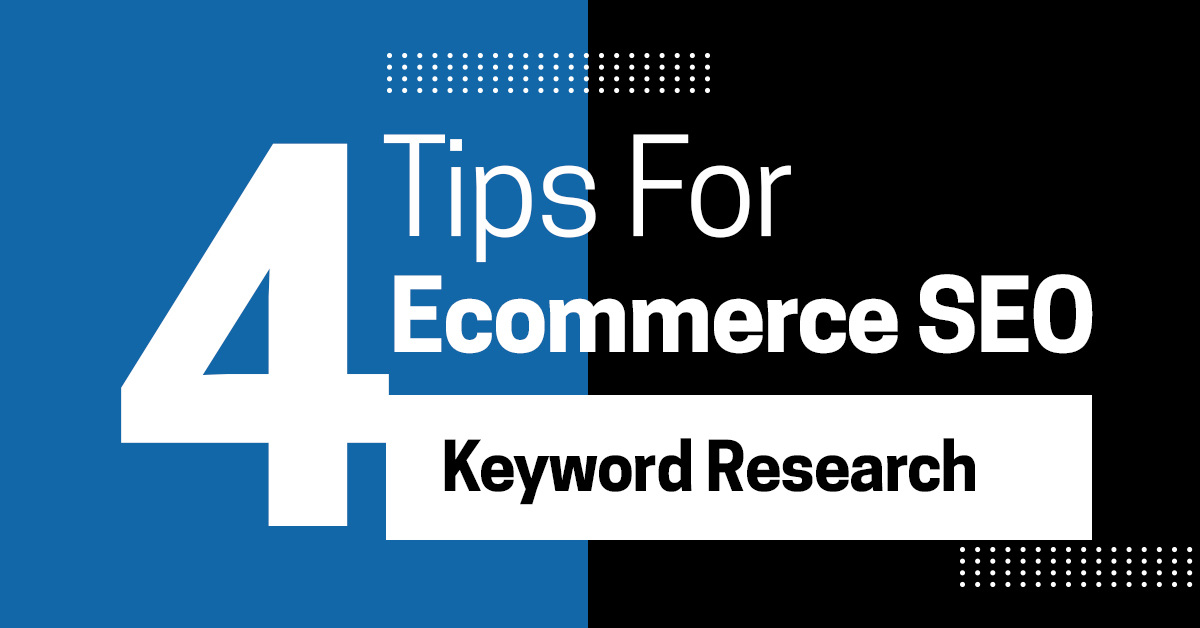If you run an ecommerce site, chances are that you’re at least somewhat familiar with the concept of search engine optimization, or SEO. You know that you should be putting relevant keywords on your product pages, in your blog posts, and in your metadata so that the algorithms and bots that fuel Google, Bing, and the rest can correctly identify your page as relevant to potential shoppers, delivering you traffic (and potentially conversions) on a silver platter.
There have been tons of guides written about the mechanics of good ecommerce search engine optimization. You know how to put keywords in things like image alt text, you know how frequently you should be using them on pages, and the like. But these guides often neglect the key to the best ecommerce SEO strategies: How do you know which keywords to use? In this blog, we’ll examine how to do keyword research for ecommerce – how to look for keywords, how to identify the best ones to use, and more.

If you sell products to remove acrylic nails, start thinking about what people are searching for.
Tip 1: Ecommerce Keyword Research Starts with a Problem
You probably have a pretty good understanding of your brand and the items you sell, right? You know the little nuances and differences in terminology that differentiate one thing from another. However, while some of your prospective customers will also have that knowledge, the vast majority of people probably won’t.
Apple’s Steve Jobs was a visionary businessman not because he knew what the consumer public wanted, but he knew what the consumer public didn’t know they wanted yet. Before the iPhone’s reveal, nobody was saying “I want a smartphone,” because the idea of the smartphone hadn’t yet been publicized. But they had problems with things like staying in touch or wrangling a bunch of gadgets (phone, watch, MP3 player, and more) that Jobs knew he could solve.
So, when you start your keyword research for ecommerce, take a similar approach. Think about what your customers don’t yet know they want, and how you can provide it to them. To paraphrase a famous quote about salesmanship: Customers don’t Google search “diamond-tipped drill bit,” they search “How do I drill a hole in metal?”
This isn’t to say that you shouldn’t ever use keywords for the products – you absolutely should – but you should think about how your customers will be searching first.

Knowing that searchers might use your organic olive oil for skin care could give you an extra blog topic you’d never have thought about.

Tip 2: Look for Related Keywords to Find Hidden Gems
Many ecommerce marketers who are new to the world of doing keyword research for ecommerce might head to their keyword research tool of choice, like SEMRush, type in the description, pick the highest-volume keywords and call it a day. Truth be told, there’s nothing wrong with this; it’s a perfectly valid way to find some useful search terms. However, consider this: Most of your competition is doing this, too.
One great way to find keywords that are much easier to rank for is to look for related keywords and related topics. Typically, your keyword research tool of choice will offer tools that show similar keywords that you can use on your ecommerce pages; these may be lower-volume and as such will be easier to hit the top ranks on.
There’s another way to do this, though: Turn to the search engines themselves. When you’ve found what you think might be good ecommerce SEO keywords that could be difficult to rank for, go to your search engine of choice, and search for these terms to see what comes up. Beyond getting a sense of the competition and how they’re ranking for these terms, sites like Google offer insight into things like “related searches” and “people also ask”.
Using these related search keywords might give you insights into alternative SEO keywords you can try to rank for, or let you take a different approach to your ecommerce SEO.

These high-level keywords would be great for blogs or how-to guides, not a product page to sell car soap.
Tip 3: Use the Right Keywords on the Right Pages
Earlier, we suggested you think like a customer and search for problems, not products. And indeed, that’s a great idea to get traffic from top-of-the-funnel sources, people who are just beginning their product journey. However, does that mean you should use these keywords on all pages for the relevant items? Of course not.
“Question” keywords, used by individuals just starting the shopping process, are best used on pages like blogs, ebooks, or how-to guides: In other words, you should direct searchers who use these question phrases to places that can answer their questions.
If someone is directly searching for product keywords, though, that person is likely far down the funnel and towards the end of their shopping journey. These people have high purchase intent, and so you should use these keywords on product pages where they can buy right away.
In other words, if someone is searching for “how do I drill a hole in a metal sheet,” you should include keywords like this in a blog post answering their question, but if they’re searching for “5/8” titanium drill bits,” those keywords should direct them to a product page where they can buy right away. The latter shopper knows what they want – your ecommerce keywords just need to direct them to it.

Local government, a major retailer, Wikipedia, and Amazon. Maybe ranking for “bicycle” isn’t such a good idea.
Tip 4: Know When Keywords Aren’t Worth the Effort
Searching for prospective keywords (as in tip #2) isn’t just a great way to find alternative ecommerce SEO keywords to the ones you’re targeting, it’s a very useful way to see which sites are already ranking for these keywords. Depending on the results, even promising-looking keywords might not be worth the effort. In general, there are two cases you should be wary of:
- The top-ranking sites are high-authority ones. If the top results in your keyword search are dominated by things like medical journals or Wikipedia, it might be best to find an alternative. These are sites with very high domain authority and reader trust, which will make them much harder to dethrone. You might be able to crack the first page, but not above the cut – and then, only after effort.
- The keywords have high cost-per-click. When looking for SEO keywords, even if you don’t intend to place any paid ads, you should note the cost-per-click value. Keywords with a high CPC tend to be keywords where the user journey ends in a paid ad. This means there’s less chance for organic traffic.
This doesn’t mean you shouldn’t use these keywords at all, but your time and effort are important. You should focus your efforts on the things that are going to have the highest chance at driving traffic (and therefore, sales) to your business.
Ecommerce SEO can be a difficult task, and anyone who tells you that there’s an easy path to success might be full of hot air – after all, if success were easy, everyone would be doing it! But by using these 4 tips to bolster your ecommerce SEO strategy with great keyword research, you’ll have a leg up on your competition.










